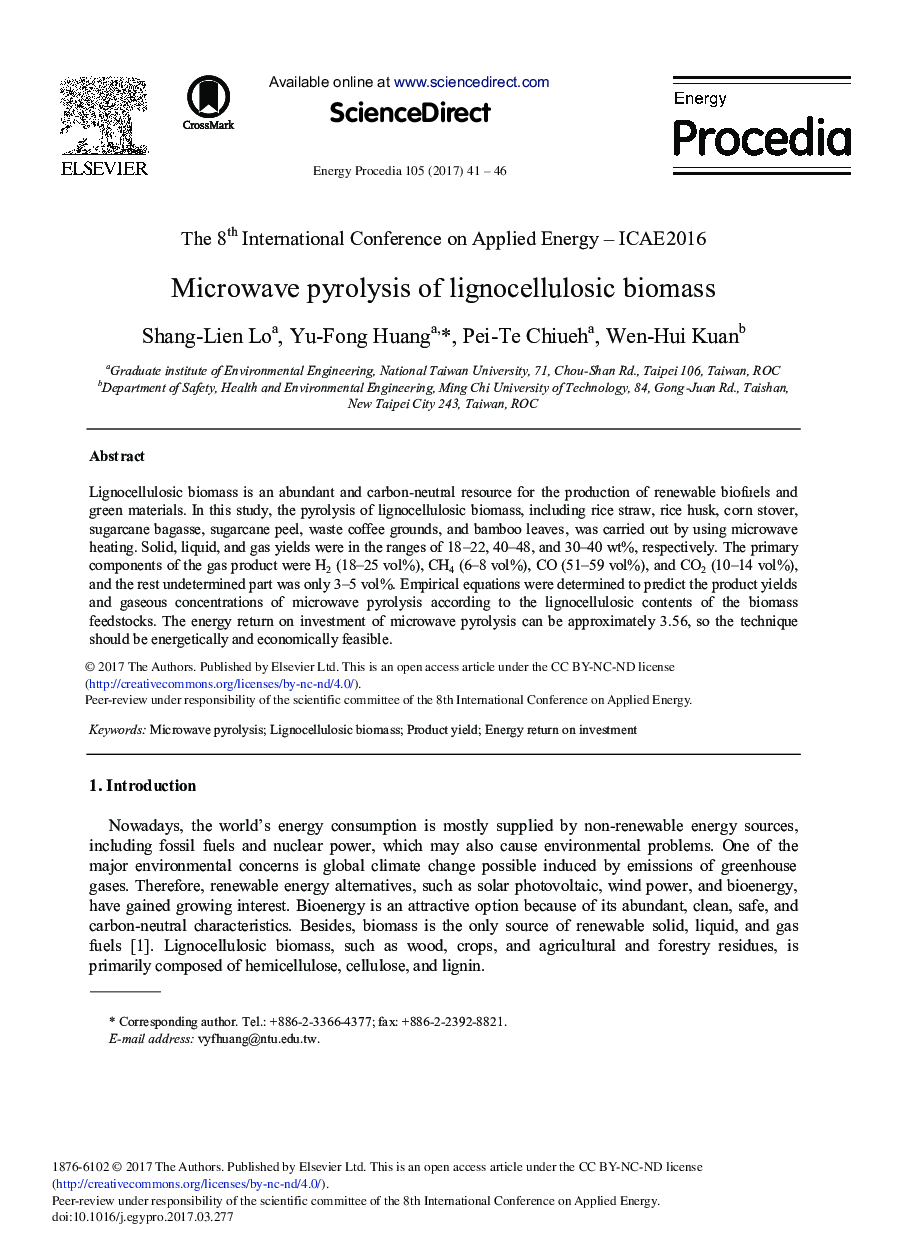| Article ID | Journal | Published Year | Pages | File Type |
|---|---|---|---|---|
| 5446229 | Energy Procedia | 2017 | 6 Pages |
Abstract
Lignocellulosic biomass is an abundant and carbon-neutral resource for the production of renewable biofuels and green materials. In this study, the pyrolysis of lignocellulosic biomass, including rice straw, rice husk, corn stover, sugarcane bagasse, sugarcane peel, waste coffee grounds, and bamboo leaves, was carried out by using microwave heating. Solid, liquid, and gas yields were in the ranges of 18-22, 40-48, and 30-40 wt%, respectively. The primary components of the gas product were H2 (18-25 vol%), CH4 (6-8 vol%), CO (51-59 vol%), and CO2 (10-14 vol%), and the rest undetermined part was only 3-5 vol%. Empirical equations were determined to predict the product yields and gaseous concentrations of microwave pyrolysis according to the lignocellulosic contents of the biomass feedstocks. The energy return on investment of microwave pyrolysis can be approximately 3.56, so the technique should be energetically and economically feasible.
Related Topics
Physical Sciences and Engineering
Energy
Energy (General)
Authors
Shang-Lien Lo, Yu-Fong Huang, Pei-Te Chiueh, Wen-Hui Kuan,
